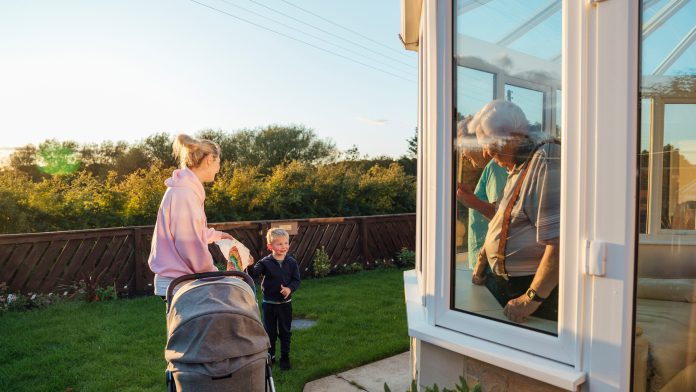
Research shows that older people who were shielding during Covid were almost twice as likely to experience depressive symptoms.
During the Covid pandemic, older and vulnerable people were asked to shield to protect themselves from the infection. However, the negative implications on mental health were heavily publicised. New research has found a two-fold rise in depressive symptoms in those over 50s who were shielding during Covid, compared to those who did not, even after accounting for loneliness and having fewer social contacts.
Lead author, Dr Giorgio Di Gessa from the UCL Institute of Epidemiology and Health Care, said: “When restrictions came into place in March 2020, around 3.8 million (6%) of people in the UK were ordered to shield, 74% of whom were aged over 50. Our study is the first of its kind to look at the effect shielding had on the mental wellbeing of older people in England.”
The study, published in the British Journal of Psychiatry, was conducted by researchers from The University of Manchester and UCL.
Shielding and mental health
The research team utilised data from over 5,000 adults aged 50 and over who are part of the English Longitudinal Study of Ageing (ELSA). They set out to analyse the link between shielding during Covid and mental health. To do this they considered sociodemographic characteristics, pre-pandemic physical and mental health, and social isolation measures. The data was collected during the first eight to nine months of the pandemic, two of which were characterised by ongoing lockdowns.
Dr Di Gessa explained: “Our analysis supports the idea that shielding itself has been harmful, over and above other known vulnerabilities.
“One reason for this could be the psychological impact of being told so starkly of your own vulnerability, mortality, and the policing of your own behaviour, resulting in anxiety and stress.”
The participants were asked whether in April, June, July, November, and December 2020 they were shielding during Covid, staying home (leaving for limited purposes such as food or exercise) or neither. Their mental health was assessed by asking questions about depressive symptoms, anxiety, well-being, and quality of life.
42% reported elevated depressive symptoms
Approximately 28% of participants reported that they were shielding during Covid at least once, with 5% shielding throughout the first eight to nine months of the pandemic. Around a third noted they stayed at home all the time, whereas 37% stated they neither shielded nor stayed home. Amongst those adults who were shielding during Covid at all times, in November and December 2020, 42% reported increased depressive symptoms compared to 23%, compared to those who were never shielded nor stayed at home. Older people shielding throughout the period studied also reported the lowest life satisfaction and quality of life scores.
Additionally, the research team accounted for pre-pandemic mental and physical health along with social contacts with family and friends and loneliness during the pandemic. This was to better understand if the relationship observed between shielding during Covid and poorer mental health was driven by pre-existing conditions or reduced social interactions and higher loneliness during the pandemic.
“Policymakers need to be aware of adverse consequences for the mental health and well-being of those advised to shield or stay at home. If the long-term health and social wellbeing of older people is to be safeguarded, there must be careful thought given to addressing the mental health and wider needs of individuals at higher risk from Covid-19 variants, or future pandemics,” concluded Co-author Professor Debbie Price, The University of Manchester.










